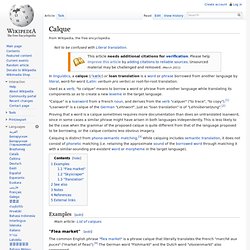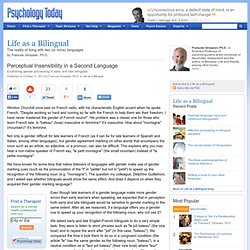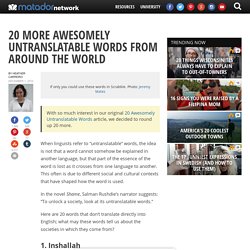

100th Meme Keys. Language in Life. EDUCATION. Futharken. Language Etymology. All In Name. Idiomatica. Slanguage. Quotatio. Philosophical grounds of rationality : intentions, categories, ends (Book, 1988) Jesse Sheidlower: jessesword.com. Wordnik is becoming a not-for-profit! Today we’re happy to announce that Wordnik.com, the world’s biggest online dictionary, has started the process of becoming a not-for-profit corporation, with the mission of collecting and sharing data for every word in the English language.

Since 2008, Wordnik has tried to be the place where every word — no matter how rare, weird, new, or ephemeral — could have a home. More than a hundred thousand Wordniks have made Wordnik.com their choice — not just for looking up (several million) words every day, but for creating a community for leaving helpful comments, adding useful tags, and making over forty thousand educational, entertaining, and just plain amazing word lists. As part of Reverb Technologies, the word graph that we’ve created has shown tremendous commercial value in delivering remarkable insights about content and users.
As part of Wordnik.com, we’ll continue to develop and support the Wordnik API, too — expect some exciting announcements on that front in the next few months. Larry's Pretty Good Word of the Day - mumpsimus / sumpsimus. Calque. In linguistics, a calque (/ˈkælk/) or loan translation is a word or phrase borrowed from another language by literal, word-for-word (Latin: verbum pro verbo) or root-for-root translation.

Used as a verb, "to calque" means to borrow a word or phrase from another language while translating its components so as to create a new lexeme in the target language. "Calque" is a loanword from a French noun, and derives from the verb "calquer" ("to trace", "to copy").[1] "Loanword" is a calque of the German "Lehnwort", just as "loan translation" is of "Lehnübersetzung".[2] Proving that a word is a calque sometimes requires more documentation than does an untranslated loanword, since in some cases a similar phrase might have arisen in both languages independently. This is less likely to be the case when the grammar of the proposed calque is quite different from that of the language proposed to be borrowing, or the calque contains less obvious imagery.
Examples[edit] "Flea market"[edit] Perceptual Insensibility in a Second Language. Winston Churchill once said on French radio, with his characteristic English accent when he spoke French, "Despite working so hard and coming so far with the French to help them win their freedom, I have never mastered the gender of French nouns!

". His problem was a classic one for those who learn French late: Is "bateau" (boat) masculine or feminine? It's masculine. How about "montagne" (mountain)? It's feminine. Not only is gender difficult for late learners of French (as it can be for late learners of Spanish and Italian, among other languages), but gender agreement marking on other words that accompany the noun such as an article, an adjective, or a pronoun, can also be difficult.
20 more awesomely untranslatable words from around the world. If only you could use these words in Scrabble.

Photo: Jeremy Mates When linguists refer to “untranslatable” words, the idea is not that a word cannot somehow be explained in another language, but that part of the essence of the word is lost as it crosses from one language to another. This often is due to different social and cultural contexts that have shaped how the word is used. In the novel Shame, Salman Rushdie’s narrator suggests: “To unlock a society, look at its untranslatable words.”
Here are 20 words that don’t translate directly into English; what may these words tell us about the societies in which they come from? 1. Arabic – [in-shal-la] While it can be translated literally as “if Allah wills,” the meaning of this phrase differs depending on the speaker’s tone of voice. 20 awesomely untranslatable words from around the world. 25 Handy Words That Simply Don’t Exist In English. Approximately 375 million people speak English as their first language, in fact it's the 3rd most commonly spoken language in the world (after Mandarin Chinese and Spanish).

Interestingly enough it's the number 1 second language used worldwide - which is why the total number of people who speak English, outnumber those of any other. But whilst it's the most widely spoken language, there's still a few areas it falls down on (strange and bizarre punctuation rules aside). We look at 25 words that simply don't exist in the English language (and yet after reading this list, you'll wish they did!) 1 Age-otori (Japanese): To look worse after a haircut 2 Arigata-meiwaku (Japanese): An act someone does for you that you didn’t want to have them do and tried to avoid having them do, but they went ahead anyway, determined to do you a favor, and then things went wrong and caused you a lot of trouble, yet in the end social conventions required you to express gratitude Source. Language: What foreign words are difficult to translate into English. Language and Culture Archives. Symboldictionary.net.
Mot juste. Fuzzi logi. Plume. Poiemaeia. Histoire. Games Storyfy. Oratio. Songs in the Key of Life. Language Expresses.